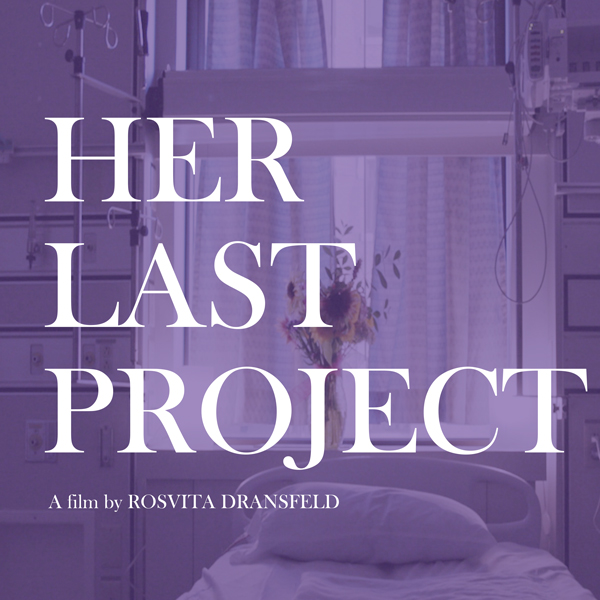Her Last Project - the documentary
Her Last Project - a documentary about the life of Dr. Shelly Sarwal
This film is the extraordinary story of Dr. Shelly Sarwal, a physician from Halifax, Nova Scotia. Diagnosed with Multiple System Atrophy (MSA), an incurable disease, Shelly chose to undergo the recently legalized Medical Assistance in Dying (MAID) procedure and become an organ donor. As the first person in Nova Scotia to undergo this complicated medical journey, she dedicated the short time she had left on this earth to educate health professionals and the public about being in control of your death and creating a meaningful legacy through organ donation.
Learn more about this project and how to screen this film here. Materials to support an educational screening of this film for professionals are available. Visit herlastproject.ca or inquire at otdt@blood.ca
Her Last Project is directed by Emmy-nominated Rosvita Dransfeld and produced by Canadian Blood Services, in partnership with Legacy of Life at the Nova Scotia Health Authority.
Produced by Canadian Blood Services and Nova Scotia Health Authority – Legacy of Life
Executive Producers: Amber Appleby and Rosvita Dransfeld
Director of Cinematography: Marcia Conolly | Editor: Brenda Terning | Music: APM
Sound Design: Philip Dransfeld | Production Designer: Adrian De La Pena
Project Lead: Ken Lotherington
ABOUT DR. SHELLY SARWAL
Born in Halifax, Shelly was a graduate of Dalhousie Medical School, McMaster University residencies in internal medicine and medical microbiology and a fellowship in infectious diseases, the London School of Hygiene and Tropical Medicine, and the Canadian Field Epidemiology Program. She had an amazing career in public health and the only thing she loved more than stamping out disease and pestilence was teaching others how to do the same. As her final act of teaching, after her organs were donated, her brain was left to the Maritime Brain Tissue Bank.
ABOUT ORGAN AND TISSUE DONATION IN THE CONSCIOUS COMPETENT PATIENT
Patients with illnesses that are incurable and terminal but not associated with devastating brain injury may also be conscious and competent. These patients are capable of actively participating in decisions about their end-of-life care, including decisions for withdrawal of life sustaining measures or medical assistance in dying. They also have the autonomy to make their own decisions about organ donation and are able to provide first-person consent. While substitute decision makers and family members are welcome and encouraged to be a part of the donation conversations, consent for organ and tissue donation following MAID or WLSM is obtained directly from the conscious and competent patient.
Nearly 20 per cent of the approximately 3,000 annual MAID deaths in Canada may be eligible for deceased organ and tissue donation. Canadians are requesting organ and tissue donation after MAID, demonstrating that this is a conversation dying patients are having and a choice they are making.
In response to patient requests for organ and tissue donation after MAID and the medical community looking for guidance in these cases, Canadian Blood Services led the development of national guidance. Dr. Shelly Sarwal was one of the patient partners who participated in this work sharing her unique perspective. Through Her Last Project, Dr. Sarwal is a pioneer in bringing this conversation to the forefront.
